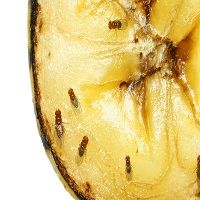Article
Fruit Flies Help Decode Human Intestinal Cancer
Author(s):
Researchers in Barcelona, Spain, have recently developed a fruit fly, Drosophila melanogaster, with colon cancer that aids in identifying significant genetic factors within human intestinal cancer.

Researchers in Barcelona, Spain, have recently developed a fruit fly, Drosophila melanogaster, with colon cancer that aids in identifying significant genetic factors within human intestinal cancer.
Led by Andreu Casali, Associate Researcher at Institute for Research in Biomedicine (IRB) in Barcelona, Spain, the team was successful in producing meta-flies specifically for the genes, APC and Ras, thus allowing experts to closely monitor the genetic alterations and how precisely they act as catalysts in tumor progression, ultimately disrupting intestinal homeostasis. Incidentally, while fruit flies do not possess colons, they do have intestines comprising of both colons and rectums — with similar functions as that of human intestines.
Casali explained, “The breakthrough is that we have generated cancer in an adult organism and from stem cells, thus reproducing what happens in most types of human cancer. This model has allowed us to identify subtle interactions in the development of cancer that are practically impossible to detect in mice with the current technology available.”
According to a news release from the IRB, the researchers examined “the effect of 250 genes that are altered in these types of tumor and found that, of these, 30% affected growth while the others had no significant effects”.
While focusing on the Mirror gene in Drosophila and Irx in humans, the team noted Mirror gravitated toward early stage tumor growth. As Casali commented, “The problem with human cancer is that we know very little about what happens in the early stages. Our models allow us to better study their development.” Irx, in fact, was found to potentially be a sound target for drugs, helping to prevent the development of sudden benign adenomas.
As gastrointestinal research prospers, experts are touting the efficiency of using the Drosophila melanogaster as the intermediate for the in vitro phase for increased economic drug screenings. “If there are 2,000 promising molecules among a million tested in vitro, instead of testing them in mice, Drosophila could offer a good alternative to identify the two or three that are most appropriate. Both time and costs would be reduced,” explains Casali.




